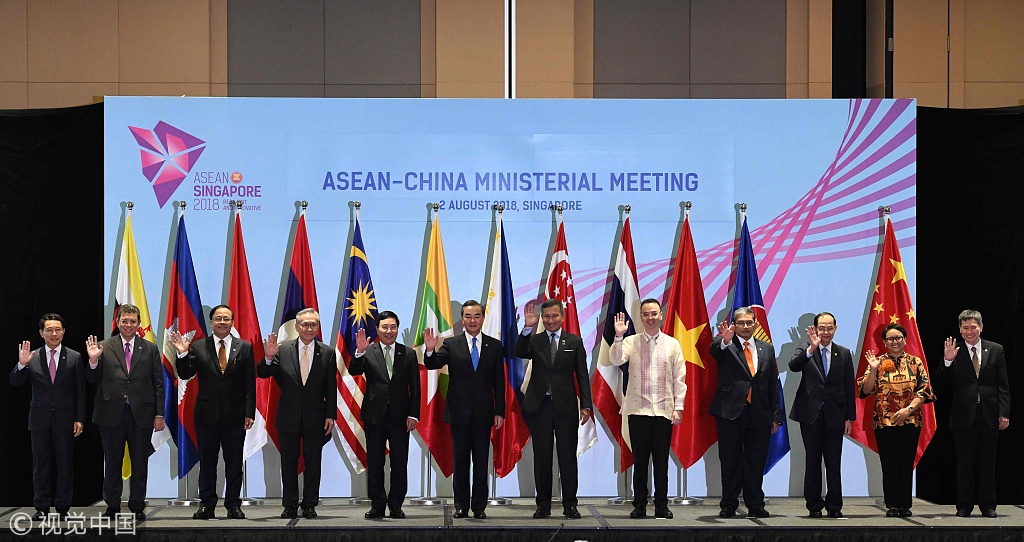China, ASEAN show shared resolve for rules-based region: China Daily editorial
chinadaily.com.cn | Updated: 2018-08-02 20:42

The foreign ministers of China and ASEAN sent the unmistakable message that the two sides are determined to steadily push for a rules-based mechanism to safeguard peace and stability in the waters when they announced they had agreed on an initial negotiating draft for the Code of Conduct in the South China Sea at their meeting in Singapore on Thursday.
This initial draft will form the basis for future negotiations on the text of the Code of Conduct. Considering that a framework for such a code was adopted just a year ago, the agreement on the draft shows China and the members of the Association of Southeast Asian Nations are sincere and earnest in reaching a consensus and smoothing the way for talks.
But although this has been rightly hailed as a new milestone, it would be unrealistic to expect a swift conclusion to the negotiations, as they involve complex and sensitive issues.
Nevertheless, there is no reason to believe that China and ASEAN will relent in their efforts to uphold the hard-won progress in their negotiations on a Code of Conduct as doing so is in the interests of both sides. As long as they continue to shore up trust and properly manage their differences, their efforts to ensure the South China Sea is a sea of peace, cooperation and friendship will undoubtedly pay off.
In the meantime, China and the members of ASEAN should reject any attempts by those from outside the region to stir up trouble and undermine their efforts to safeguard peace and stability and enhance their cooperation and connectivity.
In recent years, the United States and some of its allies that have been trying to drive a wedge between ASEAN and China, and increased the risk of mishap, by strengthening their military presence and intensifying their military maneuvers in the region.
Their provocative moves pose a threat to the regional peacemaking efforts. Both China and the ASEAN members should remain vigilant and ensure that the current desirable momentum in regional cooperation is not sabotaged or disrupted and that the free and open trade in the region is not compromised by the US’ unilateralist trade policies or its divisive and exclusive Indo-Pacific strategy.
























